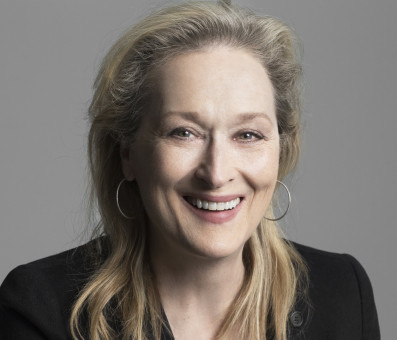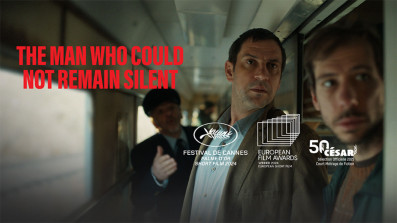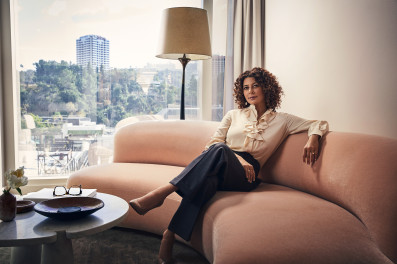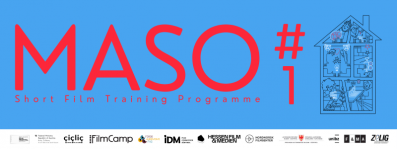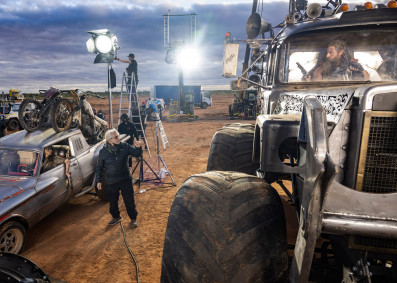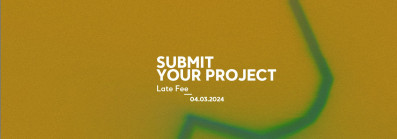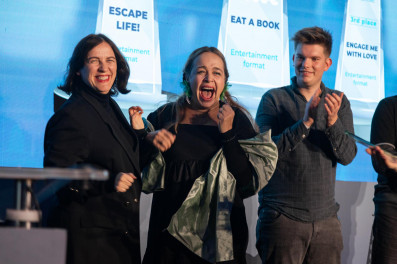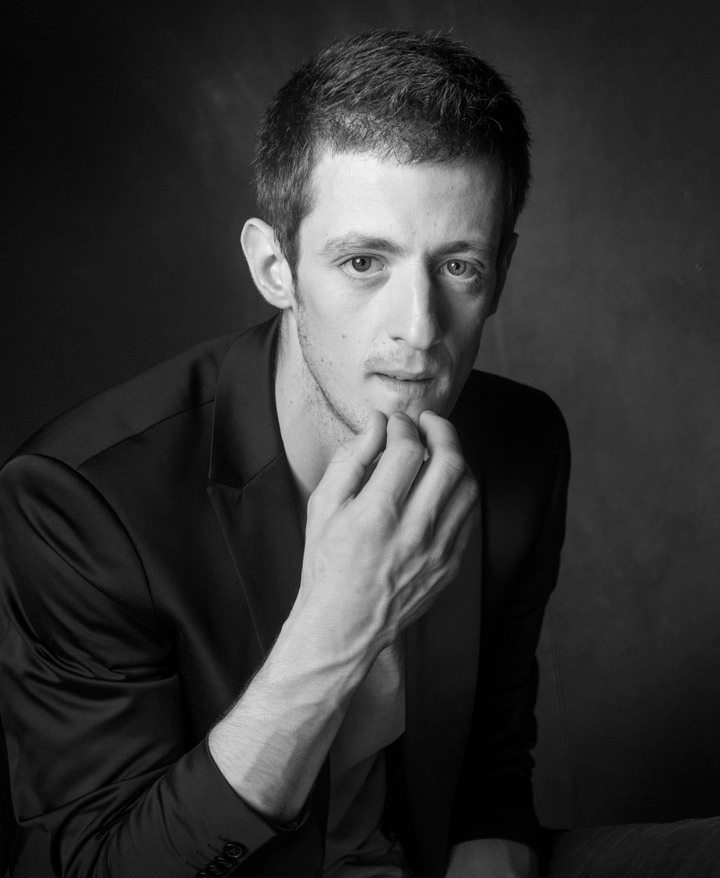
Oliver works on multiple levels, and for the actors it is a challenge, but also a positive provocation, to keep up with it. - Interview with Dado Ćosić
If you build trust and awareness that advice comes from the place of love, care and tenderness, that kind of togetherness can be unstoppable, seductive and nothing can stand in its way.
Dado Ćosić might be best known for his numerous roles in Zagreb Youth Theatre (ZKM) in plays like "Črna mati zemla", "Hinkemann" or "Eichmann u Jeruzalemu".
Born on December 14, 1987, in Bosanska Dubica, Dado moved to Zagreb in 1999, where he finished primary and secondary school. After two extremely unsuccessful years of studying political science, he enrolled at the Academy of Dramatic Arts, which he graduated from in 2014. Since then Dado acted in plenty of great roles, most noticeably collaborating on projects with film/tv directors such as Dalibor Matanić (The High Sun) and Predrag Ličina (The Last Serb in Croatia). Due to his latest role of Ivan Karamazov in Oliver Frljić's play "The Brothers Karamazov" (currently at ZKM) we did an interview with Dado you can read below.
The premiere of The Brothers Karamazov, a play directed by Oliver Frljić at ZKM (Zagreb Youth Theatre), is coming shortly. What was your experience working with Frljić and how did this collaboration enrich you? What can the audience expect from the show?
I was lucky that most of the directors I worked with were fully committed to their work and appreciated me and my authorship. It wasn’t always "the theatre" that I liked, that would be to my liking, but it was "a theatre". Oliver brought to the ZKM with the Karamazovs what it seems to me that theatre should be today. I am not insisting that this is the only possible and necessary theatre, but it is certainly one that I like and one I would sign up for to work always. Oliver works on multiple levels, as far as I could count, here there are at least five of them, and for the actors it is a challenge, but also a positive provocation, to keep up with it. For me, the process for Karamazovs was something like, if I could look for an analogy in sports, high-altitude preparations for a performance that, I immodestly think, has no equal in this area. Preparation, dedication, passion, love for actors, attentiveness, tenderness, creative madness, and constant surprise, for me as an actor are the most important qualities of a director. And he has them all. I could go on, but I’m afraid this answer would turn into a love letter.
ZKM Drama Studio was the beginning of your acting career. Have you become the actor you dreamt of, or is there always room for improvement? Supposedly, during your studies, you helped your colleagues a lot with advice in their work/exams, is that still the case today, or is it not "appropriate " to advise a colleague who works with you?
Where did you get that information? :)
Yes, because it seems to me that it is part of a creative community to help and avoid the ego. I believe breaking the ego is also a path to personal gain and growth. And I don't just advise this to others but I start with myself first. This seemed natural to me, as part of education. I thought it should be so, and that it is so, people being always in constant communication, this is what makes an ensemble. I was also convinced that the class should be, an ensemble, in constant mutual support.
_________________
If you build trust and awareness that advice comes from the place of love, care and tenderness, that kind of togetherness can be unstoppable, seductive and nothing can stand in its way. Opposite of it, what I advise to be avoided, would be the foul place where the advice comes as humiliation through suggestions, with the ego that figuratively shouts "I'm better than you, and I see better than you". The generation I ended up with was and is the one that came from a good place and our experiences confirm that this approach works.
_________________
Later I learned that it doesn't always have to be that way and that even for what seems like good advice, sometimes you need to ask permission, for various reasons and circumstances that may be unknown to the interlocutor. I need to have people with whom, that part of the process when I am not alone over the text, I will be able to communicate, and be able to communicate directly, to save time. For me, it is one of the most needed qualities, in the ensemble. And ZKM has it. And that can be seen from the stage. That’s one of the reasons I’ve always wanted to be a part of that ensemble.
How important are starting positions for who we are? To most people of our generation, a traumatic childhood, war, and dysfunctional families are excuses for what they are or are not. How has your formative experience helped you in what you are now?
There is an answer to the question, which is somewhat trivial. Because of everything that happens to us, we are what we are. And the more I learn about myself, the clearer it becomes to me what kind of things I may not have to be and where I can change. The older I get, the more it seems to me that there is no perfect childhood. It is impossible. Growing up is growing up, no matter if you have money or not, whether you are in Dubica, Zagreb or New York. Growing up is a surprise, and surprises can be traumatic. In any case, nothing that good psychotherapy can solve.
One of the roles that marked your career was certainly the role of Saša in the film Zvizdan, by Dalibor Matanić. How much did that role help you better understand your experience of war and leaving your hometown, or did that experience help you interpret the role?
The morning when I type your answers to these questions is the morning when Russia started the invasion of Ukraine. Bombs are falling, there are dead, the last news I read was that a child was killed. I saw a photograph of glass on the floor of a cracked window and thought about how long it took one man to kneel and pick up the shards of just one glass. How long will it take to pick up the wreckage of the ruined state? With all the experience of all the war, we had (Germany paid off the last reparations for World War I in 2010, the consequences of World War II are felt by both you and my generation almost 80 years after that war), fuck me if I can understand why anyone, no matter how much money was on a stake, decides to start a war.
For Saša in Zvizdan, the key for me was the experience I had as a child, and it is completely fascinating and inexplicable that someone with whom you drank coffee and was a good friend until yesterday, suddenly became an enemy, and lives two houses away from you... Someone just said, from today we hate those people, and we started hating those people. And then 5 years after that, they told us, here, now you don't hate each other anymore, be friends and they didn't teach us how to reconcile. And this is repeated over and over again in complete nonsense. I can’t be a part of it, no more. When a person dives into the meaninglessness and lightness of evil, he/she can only wish to fly from the top of a building into the unknown.
Have you watched Matanić's The Last Socialist Artefacts, what are your impressions? Given that in our region film professionals more than often work with the same team, how come you haven't collaborated on this project? Were you invited to audition?
I did not have time. Simply, in the rhythm in which I live, I either have time to watch tv/films or to read. Now it was time to read. I am looking forward to the first day off, I will watch it in its entirety. Matanić is a phenomenal director, who does great things, both on television and in film, and it is always a joy to work with him. When he needs me, he'll call me. I don’t think that me-myself-and-I should be a part of all ongoing projects in the country and the region. What is meant for me, I am sure will not pass by me.
Since you work in the theatre, and at the same time you make films and series, what is it that makes you most happy and why? What takes the most energy?
Most energy is taken away by disorganization. I have witnessed cases where the actor would be brought in at 5 am in make-up and taken to a set in the middle of nowhere, and the actor would be in just sitting and waiting until 4 pm, and of course, a masterful performance was expected. Some directors don't understand that and they don't get that taking care of the actors is usually taking care of the film. Shooting is exhausting, not so much mentally as physically. It’s easier for me when I’m, ready, in shape, when I’m keeping up with training, practising, when my body is used to the effort and then the effort of a movie set, which happens in vain, isn’t that stressful. It may seem pointless because, for example, I don’t have any shooting in front of me at the moment, but then when it happens, my body will be ready.
Regardless of several important roles, actors are mostly remembered and recognized from telenovelas. What is your attitude towards that?
I was afraid of what it meant, how it would define me, what kind of artist I would be in the eyes of my colleagues. Then I got into the first "soap opera" and it was ingenious, and to a large extent, despite the crazy pace of such shooting, I was satisfied with what I did. For an actor, especially a young actor, that experience is invaluable.
These are hours and hours spent in front of the camera, and if it is not just done “for the sake of doing it” but approached wisely with the idea that it can be a learning opportunity, it can be a good experience. At the moment, I have the honour of being an external associate at the Academy of Acting in front of the camera, and this is something I also say to students who take the course.
_________________
One director once told me that he would never take an actor who starred in a soap opera for a film. It’s a sentence that hung over my head for days before I confirmed my engagement in the soap opera. Then the devil did not give me peace so I called him to ask him why this was so. However, he could not remember at all that he had ever said it or that he meant it, and that, even if he did, he thought it was very stupid of him. :)
_________________
Typing your name into the internet search, the first thing that was offered to me, unlike most actors where it says wife, divorce, roles, was Is Dado Ćosić Serb and Dado Ćosić's parents. What does this tell us about the societies we live in and will we ever as a society recover from PTSD, depression and our incompleteness? How much do you even think about the space and time we are immersed in?
I think this first search has more to do with the role of the Serb in the series ”Sunday Morning, Saturday Evening” by Predrag Ličina about ten years ago, and not so much about my background. But let’s just say it has to do with my background. Neither when I was little, nor now, I can't get the importance of it. I can't understand that at all. My childhood was marked by the fact that being someone also means being against someone else. I could never identify with that. I will never be able to.
Sunday Morning, Saturday Evening from the previous question brought me back to phenomenal roles in Predrag Ličina's films. While making the films Teleporter Zovko and The Last Serb in Croatia, were you afraid of the audience reception? How much is it possible to open important social topics through satire and playing with the genre? What do you remember most from that shoot?
I remember the most, and we often come back to it when we meet, laughs of Tihana Lazović as she watches me try to walk like a zombie and asks me with tears from smiling: Dado, what are we filming? Another dear memory would be Jadranka Matković, as she's sitting in a wheelchair, looking at nature in front of her and saying Horror, in that Zagreb it's like in a concentration camp.
There’s that progression with Peđa, everything I’ve done with him has been getting crazier and crazier every time and I have a feeling we haven’t even started yet. These are projects I would never like to miss.
Lately, I have had the opportunity to speak with several young actors who have been praised, awarded and, like you, chosen as the best actors of the younger generation. What does this mean in the time of capitalism, hyperproduction, mass media, trivialization of art… Is it possible to make a living from acting? Could you be a freelancer without a permanent engagement in a theatre there?
I don't know the answer to that question. Before ZKM, towards the end of the academy, I was a freelancer and I remember having 4 rehearsals a day in one period. From 9 a.m. to midnight, two performances and filming in parallel. Two years later I ended up in bed with a protruding disc. At that point, I was already in the ensemble and I was given space to recover. I was given financial security that allowed me to focus and dedicate, if I wanted to, only to the theatre, only to my home. However, this is rarely the case, because I don't know, and I'm trying to find out how much is enough for me.
Filming, commercials, shows outside the home are always a welcome financial injection with which he can do something. Shelves in the apartment, buy a bed, a mattress, and stuff. The pandemic, I apologize, I could not help but mention, because it exposed all the ruthlessness of the state and the system towards independent artists. I met colleagues who told me that they had not been on stage for a year, at a time when I wished for a vacation and a break from the theatre. I did not share that reality at the time because, except for the two months that the theatre was closed, we were constantly playing. And get paid for their work.
_________________
The category of the independent artist must be revised and better protected. I am really lucky to be part of the best ensemble in Croatia within which I feel the freest man in the world and I would not change that position for anything else. If it weren’t so, my showreel would probably look better, I’d probably have the most recent photos, and I’d probably get on the nerves of most casting agents in this area.
_________________
We are opening up more and more towards external productions, have you recently had the opportunity to audition for any of the foreign projects? Did any of these roles come true?
Amid the pandemic, I had the opportunity to film the series "Feria: The Darkest Light" produced by Spanish Filmax for Netflix. I was stationed in empty Barcelona, with a restraining order after 10 pm. Surreal experience. I’ve met a few wonderful and over-talented Spanish actors I’d love to meet again in the second season of the series, which I’m a big fan of. Whether it will happen, we'll see more. It may sound fake, but I saw the invitation to that casting on Facebook, and I knew that role was mine. To be honest, if it happens to you that in those two episodes in which I'm lying around, a delivery man accidentally comes to you at that moment or someone writes to you on your cell phone, you will most likely miss my role. However, I am looking forward to a possible second season because I know that the role has been announced. And it would be good for me to spend some time, a month or two, outside of Croatia. I never did and I feel like this is what I need now.
What do you see as a shortcoming in the Croatian film industry and what would you like to be different? Do you think the Duart platform makes any difference here?
Croatian filmmakers - directors, producers and others have been very skilfully demonstrating for years how they do great things with little money. I wish they had more money. And that they don't have to compromise. The Duart platform is still one of the most important bridges in Croatia for castings for foreign and domestic market projects, and I think my "thank you" is also a thank you to many (relatively) young Croatian actors who occasionally process emails inviting casting.
What are you currently watching / reading/listening to, what inspires you, nourishes your soul and builds attitudes?
On February 26 and 27, the premiere of the play The Brothers Karamazov. In a little over two months, we have made two plays that will play in two days. Amazing work, but it paid off a hundredfold. This is what has fed my soul for the last two months, which has inspired and driven me further. And the text, the director and all those amazing talented actors that I was surrounded by and with whom I will continue to create. I am a happy man at the moment, tired but happy. In the coming weeks, I will make up for the time I missed in nature, and the first book on the cup that awaits me is Srđan Valjarević's novel "Como".
Interview by: Vanja Šunjić



